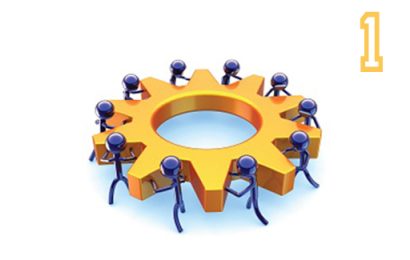
- Quizzes: 14
Entrepreneurship has been a driving force of economic progress for centuries, evolving from traditional trade practices to modern, technology-driven enterprises. Historically, early entrepreneurs were merchants and craftsmen who capitalized on trade routes and innovations. The Industrial Revolution marked a significant shift, introducing large-scale production and new business models.
Entrepreneurial thought has been shaped by economists like Joseph Schumpeter, who emphasized innovation and creative destruction, and Peter Drucker, who highlighted the role of management in entrepreneurship. Over time, entrepreneurship has evolved from individual risk-taking to structured development through incubators, venture capital, and government policies promoting startups.
In practice, entrepreneurship development involves skill-building, access to funding, and strategic mentorship. Governments and institutions worldwide foster entrepreneurship through policies, education, and startup ecosystems. Today, digital transformation, sustainability, and social impact play a crucial role in shaping entrepreneurial ventures.
Understanding entrepreneurship’s history, key theories, and practical approaches is essential for aspiring business leaders. It not only drives economic growth but also fosters innovation and job creation, making it a critical force in modern economies. Whether launching a startup or scaling a business, entrepreneurship remains at the heart of progress and societal change.
Curriculum
- 2 Sections
- 0 Lessons
- Lifetime
- Notes0
- MCQ14
- 2.1Marketing – Concept, Orientation, Trends and Tasks, Customer Value and Satisfaction10 Minutes20 Questions
- 2.2Introduction to Marketing10 Minutes20 Questions
- 2.3Buyer Behavior10 Minutes20 Questions
- 2.4Market Segmentation, Positioning and Targeting10 Minutes20 Questions
- 2.5Product and Pricing Decision – Product Mix, Product Life Cycle, New Product development, Pricing – Types and Strategies10 Minutes20 Questions
- 2.6Place and promotion decision – Marketing channels and value networks, VMS, IMC, Advertising and Sales promotion10 Minutes20 Questions
- 2.7Consumer and Industrial Buying Behaviour: Theories and Models of Consumer Behaviour10 Minutes20 Questions
- 2.8Brand Management – Role of Brands, Brand Equity, Equity Models, Developing a Branding Strategy; Brand Name Decisions, Brand Extensions and Loyalty10 Minutes20 Questions
- 2.9Marketing Mix – Place (Distribution)10 Minutes20 Questions
- 2.10Service Marketing – Managing Service Quality and Brands, Marketing Strategies of Service Firms10 Minutes20 Questions
- 2.11Customer Relationship Marketing – Relationship Building, Strategies, Values and Process10 Minutes20 Questions
- 2.12Retail Marketing – Recent Trends in India, Types of Retail Outlets10 Minutes20 Questions
- 2.13Emerging Trends in Marketing – Concept of e- Marketing, Direct Marketing, Digital Marketing and Green Marketing10 Minutes20 Questions
- 2.14Marketing Research and Information Systems10 Minutes20 Questions






